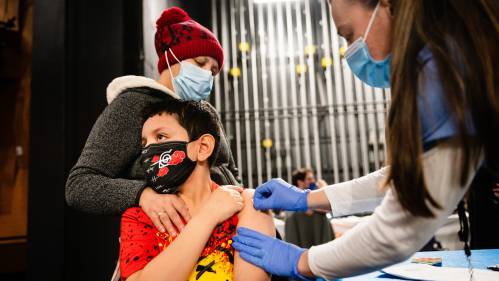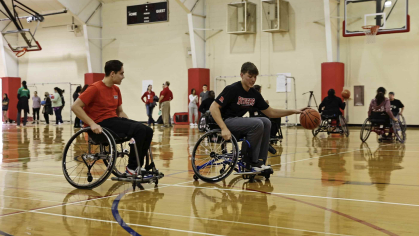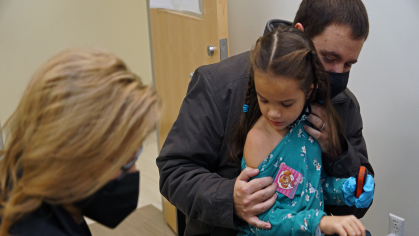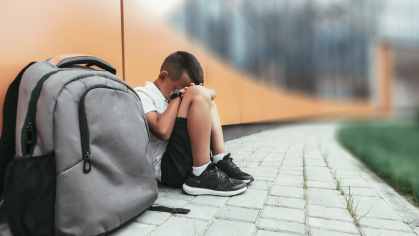Rutgers Helps Build Resilience in Communities Hard-Hit by COVID-19

Rutgers Global Health Institute is helping underserved communities in Essex, Mercer, and Middlesex counties hard-hit by the COVID-19 pandemic offer residents accessible vaccination and testing.
The effort, funded by a New Jersey Department of Health grant, is breaking down many barriers low-income and minority populations can face in getting vaccinated and tested, including inaccessible locations, employment conflicts, immigration status, language barriers, and cultural norms.
“Our program coordinators live in the communities we serve and speak the languages households primarily speak,” says Richard Marlink, director of Rutgers Global Health Institute. “We are also going where the need is, providing pop-up clinics people can travel to without a car, and offering evening and weekend hours for people who cannot miss work to get vaccinated and tested.”
The grant has enabled significant expansion of the institute’s Equitable Recovery for New Jersey’s Small Businesses program, which originally launched in New Brunswick, followed closely by Newark.
The program offers a wide range of services to help small businesses in low-income and minority communities that have faced economic and operational challenges due to the COVID-19 pandemic. Services include education and training to help businesses navigate evolving guidance, on-site consultations to assess and address individual business needs, and many additional areas of support for employers, employees, and their families, such as food assistance, housing support, and medical and mental health services.
The Equitable Recovery program has expanded to the city of Trenton. The program’s COVID-19 vaccination and testing services have expanded beyond the city and now include all of Mercer County, as well as Middlesex and Essex counties. In these three counties, vaccination and testing services are being offered in the communities that need the most support.
In Middlesex County, the city of Perth Amboy – where only 33 percent of the eligible population has received a booster shot as opposed to 58 percent countywide – has emerged as a significant area of need. Only 75 percent of children aged 5 to 11 have completed their COVID-19 vaccine series, compared with 97 percent of children in Middlesex County.
Rutgers Global Health Institute has partnered with local organizations to host two vaccination events and one COVID-19-related health and awareness event in Perth Amboy. The institute is also working with these local partners to roll out Equitable Recovery program services in Perth Amboy.
“Ensuring that vulnerable populations have easy and equitable access to vaccinations and testing is a critical step in helping New Jersey on the road to recovery from COVID-19,” said Omolola Taiwo, executive director of the Office of Primary Care and Rural Health within the New Jersey Department of Health’s Division of Community Health Services. “We are thankful to our partners in helping to amplify the resiliency of communities across the state.”
The program offers vaccination and testing clinics in nontraditional locations that are deeply embedded in communities, such as places of worship, schools, and restaurants. One weekly clinic in New Brunswick, which is open to the public, is on the stage and in the lobby of the New Brunswick Performing Arts Center.
Each location has program coordinators who are fluent in both English and Spanish. In Essex County, language support is also available in Haitian Creole, due to the significant Haitian immigrant community in Greater Newark.
Program officials plan to continue expanding support to underserved communities in New Jersey, even after the pandemic ends.
“The pandemic may be over in the minds of many, but the needs of these communities have not disappeared,” said Arpita Jindani, who leads the Equitable Recovery program at Rutgers Global Health Institute. “In fact, they need more support than ever, and we are committed to helping our communities build long-lasting resilience beyond the COVID-19 pandemic.”


